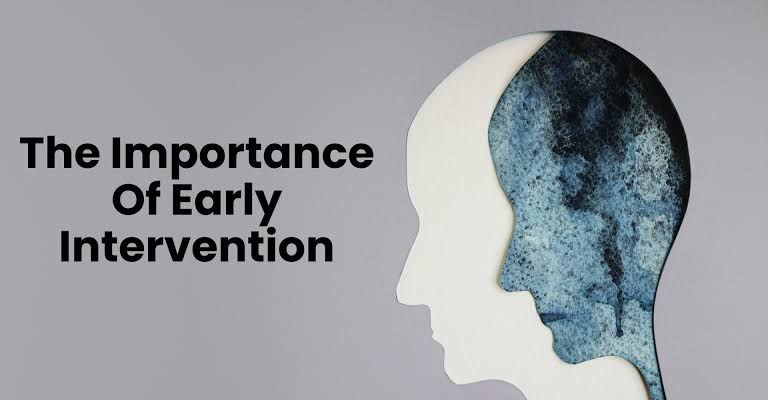The Importance of Early Intervention in Mental Health
Mental health has become a central focus in discussions about overall well-being, especially in recent years. While awareness has increased, one of the most critical components of effective mental health care remains early intervention. Recognizing and addressing mental health issues at their onset can dramatically improve outcomes, reduce long-term suffering, and foster resilience. This article explores why early intervention is vital, the benefits it offers, and how individuals and systems can work together to promote timely support.
Why Is Early Intervention So Crucial?
Mental health conditions often develop gradually, with symptoms that can be subtle or mistaken for normal stress or mood swings. If left unrecognized, these issues can escalate, leading to more severe mental health disorders, reduced quality of life, and increased risk of comorbid physical health problems.
Early intervention is essential because:
– Preventing Progression: Addressing symptoms early can halt or slow the progression of mental health conditions. For example, early treatment of depression can prevent it from becoming chronic or leading to suicidal thoughts.
– Better Treatment Outcomes: The brain is most adaptable during the early stages of mental health issues. Intervening promptly can lead to more effective treatments, quicker recovery, and less reliance on medication or prolonged therapy.
– Reducing Impact on Daily Life: Early support minimizes disruptions to education, employment, relationships, and overall functioning. It enables individuals to maintain their routines and social connections.
– Cost-Effectiveness: Preventing the escalation of mental health issues reduces the long-term economic burden on healthcare systems and society, including costs related to hospitalizations, medications, and lost productivity.
Recognizing the Signs of Mental Health Issues Early
Early intervention begins with awareness. Recognizing the initial signs can lead to timely help. Some common early warning signs include:
– Persistent sadness or mood swings
– Withdrawal from social activities or friends
– Changes in sleep or appetite
– Sudden decline in academic or work performance
– Increased irritability or anger
– Anxiety or worry that feels disproportionate
– Difficulties concentrating
– Feelings of hopelessness or worthlessness
It’s important to remember that everyone experiences some of these symptoms occasionally. However, when they persist for weeks or interfere with daily life, they warrant attention.
Barriers to Early Intervention
Despite its importance, many people do not seek help early due to:
– Stigma and shame: Fear of being judged can prevent individuals from speaking out.
– Lack of awareness: Not recognizing the symptoms or believing they will pass.
– Limited access to services: Long waiting times, lack of local resources, or financial barriers.
– Cultural factors: Some communities may view mental health issues as taboo or spiritual problems.
Addressing these barriers requires community education, destigmatization campaigns, and improved healthcare infrastructure.
How Can We Promote Early Intervention?
- Education and Awareness: Schools, workplaces, and community organizations should provide information about mental health signs and encourage openness.
- Training for Gatekeepers: Teachers, employers, and primary care providers can be trained to identify early symptoms and refer individuals for help.
- Accessible Services: Expanding mental health services with shorter waiting times and community-based programs ensures help is available when needed.
- Use of Technology: Digital mental health tools, such as apps and online screening questionnaires, can facilitate early detection and support, especially for those hesitant to seek face-to-face help.
- Family and Peer Support: Educating families and friends to recognize warning signs can lead to early encouragement to seek professional help.
The Role of Healthcare Providers
Primary care practitioners are often the first point of contact for individuals experiencing mental health issues. Regular mental health screenings during routine appointments can help detect problems early. Additionally, specialized early intervention services, such as those for psychosis or adolescent mental health, have proven effective in reducing long-term disability.
The Future of Early Mental Health Care
Research continues to emphasize the importance of early intervention. Advances in neuroscience, genetics, and digital health are paving the way for more personalized, accessible, and effective early support systems. Integrating mental health care into general health services and community settings will be vital in ensuring that help reaches those who need it most.
Conclusion
Early intervention in mental health is not just a medical strategy—it’s a societal imperative. By recognizing symptoms early, reducing stigma, and expanding accessible services, we can help individuals recover more swiftly, lead fulfilling lives, and prevent more severe mental health crises. Promoting a culture of openness, education, and proactive care is essential in building healthier, more resilient communities. The sooner we act, the better the outcomes—for individuals, families, and society as a whole.
Prof. Ahmed EL Missiry
Addresses
– 146 SPACES, 17 City North Place, Finsbury Park, London N4 3FU
– Nightingale Consulating Rooms, 11-19 Lisson Grove, Marylebone, London NWI 6SH
Contact Numbers
WhatsApp
– +44 7452 355225
– +44 7418 465495
Phones
– +44 (0)20 7535 7700
– +44 (0)80 0970 8017

